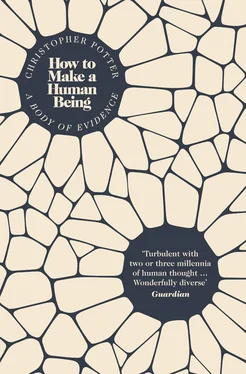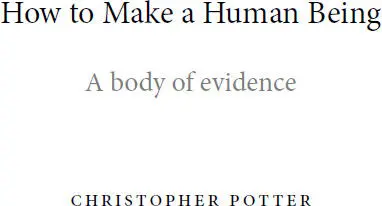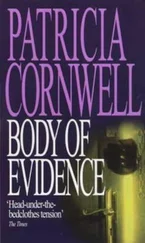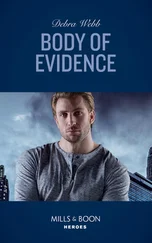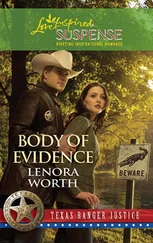
Fourth Estate
An imprint of HarperCollins Publishers 77–85 Fulham Palace Road, Hammersmith, London W6 8JB
www.4thestate.co.uk
First published in Great Britain by Fourth Estate in 2014
Copyright © Christopher Potter 2014
Christopher Potter asserts the moral right to be identified as the author of this work
A catalogue record for this book is available from the British Library
All rights reserved under International and Pan-American Copyright Conventions. By payment of the required fees, you have been granted the non-exclusive, non-transferable right to access and read the text of this e-book on screen. No part of this text may be reproduced, transmitted, down-loaded, decompiled, reverse engineered, or stored in or introduced into any information storage and retrieval system, in any form or by any means, whether electronic or mechanical, now known or hereinafter invented, without the express written permission of HarperCollins.
Source ISBN: 9780007447794
Ebook Edition © MARCH 2014 ISBN: 9780007447800
Version: 2015-02-02
For Peter
Contents
Cover
Title Page
Copyright
Dedication
PART ONE: Materials and Instructions
Section 1: Getting started
Section 2: What can the matter be?
Section 3: Taking sides
Section 4: Nothing → something → everything
Section 5: What is science?
Section 6: What is the universe?
Section 7: Evidence for the existence of an external world
Section 8: Evidence against the existence of an external world
Section 9: On time
Section 10: On things
Section 11: Starting again
PART TWO: Animating the Doll
Section 1: Matter → meat
Section 2: Making babies
Section 3: On consciousness
Section 4: On the self
Section 5: Meat → mind
Section 6: On perception
Section 7: On free will
Section 8: On behaviour
Section 9: There is always something missing
Section 10: When the gene is no longer enough
Section 11: On tools and human evolution
Section 12: Being rather than making
PART THREE: On Being Human
Section 1: On culture
Section 2: On the relationship between human beings and nature
Section 3: On the relationship between human beings and other animals
Section 4: On the relationship between human beings and other human beings
Section 5: On love
Section 6: On doing the right thing
Section 7: On the difficulty of being
Section 8: On dreams and doing nothing
Section 9: On memory
Section 10: On faith, belief and truth
Section 11: On God
Section 12: On eternity
Section 13: On death
Section 14: On humility
Footnotes
Select bibliography
Index of names
By the same author
About the Publisher
PART ONE
What’s the matter?
The opening words of Coriolanus
SECTION 1
Getting started
1 | Clearly one way to make a human being is to start by making a universe of the right kind. But out of what material, and what conditions?
SECTION 2
What can the matter be?
There is only one sort of stuff, namely matter – the physical stuff of physics, chemistry and physiology.
Daniel Dennett, philosopher
There is only one kind of stuff in the universe and it is physical. Out of this stuff come minds, beauty, emotions, moral values – in short the full gamut of phenomena that gives richness to human life.
Julian Baggini, philosopher
The laws of physics have conspired to make the collisions of atoms produce plants, kangaroos, insects and us.
Richard Dawkins, biologist
1 | All of reality is nothing more than an arrangement of particles. Our physical and mental life must be made out of particles because there is nothing else. Everything comes down to what the particles are. Work that out and you know all there is to know.
2 | Bishop Berkeley’s 1strongest claims to whatever fame is still attached to his name are his theory of immaterialism – that material objects exist only because there is a mind that perceives them – and his ‘proof’ that there is nothing the world can be made out of. If the world is material and made out of some type of smallest thing, some particle, then whatever that smallest particle is, it must extend into space, since it is in the nature of all material things that they take up room. Furthermore it must be possible in principle, even if we don’t know how to do it in practice, to divide these particles into smaller particles; because however small any particle might be, we can imagine some part of it taking up less space. And so the search to find the smallest particles out of which the fabric of the material world is woven must be endless. The argument does not necessarily claim the world as spirit, so much as point out that a material world must be some kind of an illusion: not that the world does not exist, but that it is not what it appears it be.
There is no there there.
Gertrude Stein (1874–1946), poet and novelist 2
I have followed the materialist story of our origin – nay, of my origin. But I have grave misgivings. As an act of faith it requires so much.
John Eccles (1903–97), neurophysiologist
I said that the latest advances in science seemed to have made materialism untenable, and that the most likely outcome was still the eternal life of the soul and reunion beyond the grave.
Marcel – Proust’s narrator – to his grandmother in Remembrance of Things Past
1 | Ever since Newton’s time, when billiards was in vogue, science has tried to reduce the world to balls hitting one another: billiard ball atoms, billiard ball planets, billiard ball stars. For those of us who have fought shy of games ever since schooldays, it is sometimes hard to accept that ball games really are the be all and end all of existence. Even on those days when I know – or is it fear? – that all that there is can be reduced to particles, I am dispirited. I feel as I did at school: I know that materialism is the manlier choice, but it just isn’t me.
There are days when the world seems to be split into two teams and I do not know which side to be on. Brian Greene, Richard Dawkins (captain), Daniel Dennett, Dr Johnson, Thomas Jefferson, Lucretius, Stephen Hawking, Aristotle, David Attenborough and Thomas Huxley are on one side. 1Marcel Proust, Leo Tolstoy, William James (captain), Marilynne Robinson, John Keats, Rowan Williams, Karen Armstrong, Plato, William Blake and Emily Dickinson on the other. Dr Johnson and Rowan Williams sometimes play in goal. Proust and Keats invariably call in sick. Darwin and Descartes have been known to show up for either side. Einstein is a popular referee. Confusingly, there are times when it is hard to tell which team even Richard Dawkins or Brian Greene is playing for. But generally Richard Dawkins’s team terrifies me and wins. William James’s team invariably loses, but they don’t seem to care.
On the one side are the materialists: what you see is what you get. The world can be reduced to basic ingredients, and those ingredients are material: they exist, can be weighed and counted, measured and timed. Materialism, reductionism: words that shine with confidence.
Читать дальше
